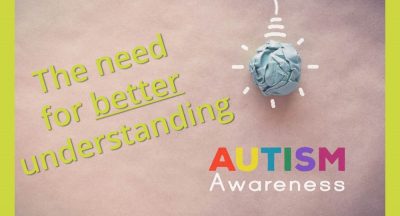
Last updated: 14th July 2024
Requests for support for SEND children has risen by 60% since 2019
This article, however, is not just about those children whose needs have already been identified as they have progressed through primary school, I also worry about those children who have been managing at primary school. Children like Alfie and Georgia. Alfie is in year six currently. His teacher, Miss Smith, knows him very well. He attends a small primary school and has always been gently supported. Miss Smith knows that Alfie finds it hard to move from shorts to trousers every winter and vice versa in the summer. She knows that he needs advance warning of any change to the daily timetable and that he hates World Book Day. Miss Smith also knows Georgia. Georgia is also in year six. She knows that Georgia needs to be seated at the front of the class, has some challenges following what Miss Smith has said, unless she speaks slowly and clearly, without any ambiguity. Georgia also has a few problems with friendships, and Miss Smith knows that. From time to time, Georgia will ask to stay in the class at lunch time and help in the library. She also knows that when the class goes on an outing to the theatre, Georgia will need to sit near the exit as it is likely she may need to go out halfway through the performance for a break, as she will become overwhelmed.
Neither Alfie nor Georgia has a formal diagnosis of autism
The local secondary school is large, there are around 2000 pupils. They have a strict uniform and behaviour policy and, although they do offer pastoral support, there are many children with additional needs who require support.
Miss Smith worries about how they will cope in this environment. She knows that the curriculum will become more challenging, particularly for children like Georgia, who struggle with auditory processing and have a literal thinking style. She also knows that Georgia is likely to struggle with friendships. She knows that Alfie will worry about changes to the curriculum and will be genuinely distressed by the strict uniform policy.
All that both children need is for their challenges to be acknowledged and for small, reasonable, adjustments to be put in place. Neither may need (or be given) an EHCP. Both Georgia and Alfie (and the many children like them) are going to find secondary school difficult. They will both also face the additional challenges of puberty, and the growing complexity of relationships and friendships will become increasingly hard to negotiate. They may ultimately begin to resist going to school, develop anxiety or depression, or begin ‘acting out’ at home, when the struggle to ‘hold it together’ becomes too much for them.
Alfie, Georgia, and Miss Smith are all fictitious characters, but similar scenarios to those described above are happening at many primary schools across the country.
Later problems may be avoided
There are many young people who are likely to be autistic, who may not, for many reasons, be able to immediately access a full assessment. We, like the government, have no magic wand or easy answer to the issue of waiting times. Demand is simply outstripping availability and there is no easy way of solving this. We have, and will continue where possible, to support the NHS with assessments. We offer a free screening service, which can give an indication of the need for assessment and reasonable adjustments. Additionally we can offer a stand-alone cognitive assessment that will highlight areas where the child may struggle or have a ‘spiky profile’ – please email [email protected] for further details. Finally, we can of course also offer a private autism assessment for those for whom this is an option. We do currently have some availability to assess children before the start of the new school year.
For further information on our free screening service, please see click here or the below button:
Related Posts
Autism related training videos for GPs and other health professionals
Help for Psychology, an organisation with extensive experience in supporting...
Our new ‘Managing Emotions and Relationships Skills’ group
A 10 week DBT-informed group covering topics such as Mindfulness, Distress...
Missed or delayed Autism and PDA diagnoses
This article is equally applicable to both boys and girls. In the course of...
The need to better understand how autism presents
A new year dawns and it is always a good time to reflect upon the previous year....




